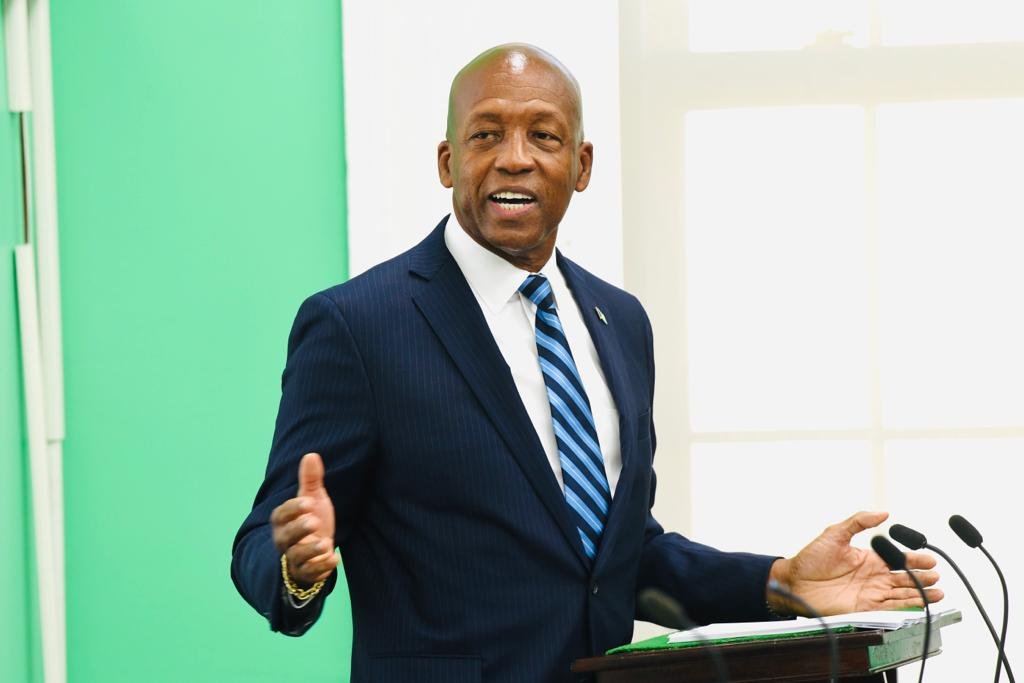NASSAU, BAHAMAS — Minister of Works Alfred Sears said that people living in shantytowns could face deportation or eviction once an assessment is completed.
“There are presumably persons who are undocumented and those persons will have to be deported, because if you violate the immigration law, then, of course, there are certain consequences,” Sears said.
The minister added that the inter-ministerial group that will be dealing with the shantytown communities on Crownland, Private land, and Commonage land has already begun preparations for assessments and will be taking a comprehensive approach to dealing with the issue.
“It will have implications in terms of education,” Sears said.
“You have children who are in these communities. There is a legal obligation that children be in school.
“It will involve issues of housing. Bahamian citizens are in these communities, and the question is, how do we transition persons from these irregular communities into proper housing?
“[…] and of course, there are also issues of health. The issues of unauthorized access to utilities, electricity, water, and therefore, it’s comprehensive.”
Sears said the various sectors of the government will be working with civil society stakeholders; Commonage Committees, church organizations, and other civic groups in the country to effectively deal with the problem.
Amid criticism about the length of time it is taking to get the ball rolling on the issue, the works minister stressed the importance of operating within the country’s legal framework.
“Any action taken will be done in accordance with the law, with respect to the other branch of government, which is the judiciary, and we are clear that there is a matter before the court and the office of the Attorney General representing the government will be visiting with the Supreme Court with respect to any action that is taken,” he said.
Sears noted that the injunction for the shantytowns is still in place and that the Attorney General had advised him that there is an existing action before the Supreme Court.
The groundwork for a national survey is set to be carried out in due course, according to the works minister who explained that multiple islands have been impacted by the growing issue that did not just ‘develop overnight’.
Sears said: “Clearly, there will be international implications and communication is being made with multilateral bodies concerned with immigration and resettlement issues so that we are dealing with the national issues.
“[…] They’ve (the committee) started to work their number of surveys which are being done. Those surveys will have to be expanded because it has come to our attention in other islands other than the ones we were focused on initially, that there are communities that are irregular which are squatting on land.
“So the scope has had to be expanded and that means more resources in terms of aerial surveys, in terms of persons going in and ascertaining for in these communities,” Sears said.
Sears said that he could not give a deadline on when the committee will start to take full action on the project, neither could he say which area would be first priority as the assessments have not yet been completed.
“I would like to give you a deadline and say tomorrow,” he said.
“But the preparation has to be done. And also, it involves forestry and it involves multiple government agencies, the natural resources of the country, and multiple interests, because in some areas, from the intelligence we are getting, you have bohemians who are leasing land on which some of these irregular communities are located.”
Sears continued: “We will have to before making any definitive announcement, we will have to liaise with the Supreme Court, since there is an existing injunction. And as we enforce the law, we have to ensure that it’s done in concert with the Supreme Court, which has granted an injunction, and that injunction has been also amended by consent of the parties.
“So clearly, there has to be due regard and relevant applications made to the Supreme Court.”






